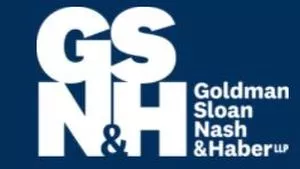A recent decision of the Federal Court has confirmed a general approach concerning section 45 proceedings.
The Facts
The registrant owned the trademark PENTASTAR for use in association with goods, which were no longer an issue, and services consisting of the movement of and erection of oil and gas drilling rigs; light oil field construction.
The requesting party caused a notice to be sent under section 45 of the Trademark Act. The notice required that the registrant furnish evidence showing that the mark had been used in Canada in association with each good and services specified in the registration during the three-year period immediately preceding the date of the notice.
The registrant filed an affidavit attempting to show use during the three-year period. A hearing took place before a hearing officer of the Trademark Opposition Board. The hearing officer in a detailed written decision maintained the registration regarding the services only. The requesting party appealed from this decision to the Federal Court.
The Appeal
On the appeal, the judge said there were three issues to be resolved: the standard of review; whether hearsay evidence had been improperly admitted and whether the decision with reasonable in finding a use of the mark in association with the services.
In statutory appeals under the Trademarks Act, there are two competing standards of review. The standard of correctness, which is generally applied to matters of law and the more deferential, standard of reasonableness. The judge categorized whether the evidence showed use as not being a question of law but a question of mixed law and fact to which the reasonableness standard applied. The judge agreed that the admissibility of hearsay evidence was a question of law but given the context felt that the reasonableness standard should apply to it.
The judge confirmed that section 45 is intended to be a simple, summary and expeditious procedure for cleaning up the trademark register of trademarks that have fallen into disuse. It is designed to clear deadwood from the register not to resolve issues between competing commercial interest which should be resolved in expungement proceedings under section 57 of the Act.
The evidence put forward by the registrant need supply only facts from which, on balance, a conclusion of use may follow as a logical inference. The threshold is relatively low, and the registrant need provide only some evidence beyond a mere assertion that would allow the hearing officer or court to conclude that the mark was in use in the normal course of trade. There is no need for evidentiary overkill.
Regarding the argument that the hearing officer had inappropriately relied on hearsay evidence, the judge agreed with the hearing officer that the witness did have personal knowledge of the facts. It is well established that a strict approach to hearsay is not appropriate in section 45 proceedings. That the evidence may be hearsay goes to its weight, not its admissibility.
Regarding whether the hearing officer's decision was reasonable in finding use in association with services the judge acknowledged that the registrant could have filed better evidence. However, as observed the threshold is low, and the judge could only intervene if the overall result was unreasonable. Given the evidence, as a whole, the judge was satisfied that the hearing officer's decision was reasonable in determining that the registration should not be struck regarding services.
Comment
This decision deals with services. Because of the impact of the definition of "use" in the act is relatively easier to show use for services than for goods. Despite the summary nature of the proceedings, evidence should still be detailed and satisfy the elements set out in the definition of use. This can be more difficult for goods.
Since it is expected that Trademark reform will prompt the increased use of section 45 proceedings, it is important to understand the basic concept of trademark use and the evidentiary requirements that apply.
The content of this article is intended to provide a general guide to the subject matter. Specialist advice should be sought about your specific circumstances.

